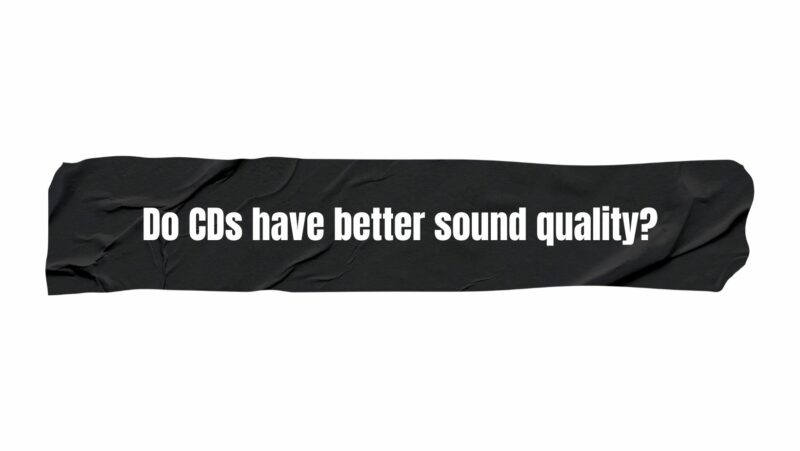Compact discs (CDs) are a physical medium that store audio data in a lossless format. This means that the audio data is not compressed, which results in the highest possible sound quality. The standard audio quality for CDs is 16-bit/44.1kHz, which is equivalent to 1411.2 kbps.
However, there are other digital audio formats that also offer lossless audio quality, such as FLAC and ALAC. So, do CDs still have better sound quality than other digital audio formats?
The answer is not so simple.
CDs are a physical medium, so they are susceptible to scratches and other damage. This can degrade the sound quality. Digital audio formats, on the other hand, are not susceptible to physical damage.
In addition, the sound quality of a CD can also be affected by the quality of the CD player and the speakers. If you have a high-quality CD player and speakers, then you may be able to hear a difference between CDs and other digital audio formats. However, if you have a low-quality CD player and speakers, then you may not be able to hear a difference.
Ultimately, whether CDs have better sound quality than other digital audio formats depends on a number of factors, including the quality of the CD, the CD player, the speakers, and your own personal listening preferences.
Here are some other factors to consider when choosing between CDs and other digital audio formats:
- Convenience: CDs are more convenient to use than other digital audio formats. They do not require a computer or internet connection to play.
- Price: CDs are typically more expensive than other digital audio formats.
- Portability: CDs are not as portable as other digital audio formats. They are also more susceptible to damage.
If you are looking for the highest possible sound quality and you have a high-quality CD player and speakers, then CDs are a good option. However, if you are looking for a more convenient and affordable option, then other digital audio formats are a good choice.


